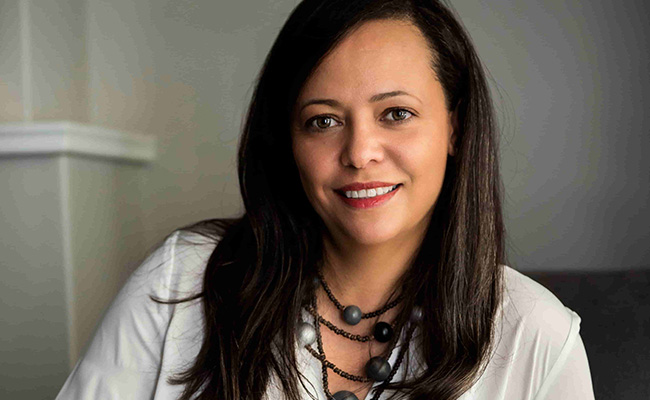As South Africa advances towards its vision of a transformed digital economy by 2030, the time is ripe for the private sector to step up and assert its power and influence to drive meaningful progress. One way to achieve this is by coming together to build a robust, sustainable pipeline of local technology skills, driven by strategic public-private partnerships (PPPs).
This is the view of Dhesen Ramsamy, chief technology officer at Old Mutual, who adds that this step is essential not only to drive innovation and economic growth but also to protect the country against escalating cybersecurity threats and to keep the costs of information and communication technology (ICT) down, led by appropriate and effective solutions.
With the ICT sector already contributing approximately 19% to South Africa’s GDP, and expected to grow by 10%-15% annually, the stakes could not be higher. Yet, despite rapid digital adoption and demographic advantages such as a youthful population (more than 50% of South Africans are under the age of 30), the country faces a critical shortage of skilled professionals in key areas such as data analytics, cybersecurity and software development.
“We cannot afford to remain passive. The cost of inaction or low responsiveness will be paid in lost opportunities, increased reliance on international service providers, and exposure to increasing global cyber threats,” says Ramsamy. “It is imperative that the private sector establishes an organised, collaborative platform where we can work together to develop talent, share knowledge, and align with national ICT priorities.”
The talent pipeline
Old Mutual has been exploring innovative approaches to address skills gaps through its Global Capability Hub (GCH) initiative, which operates technology centres in Durban and Hyderabad, with plans to expand across Africa.
“We’re not just talking about collaboration, we’re actively contributing to building Africa’s insurtech talent engine,” Ramsamy says.
He adds: “Our Global Capability Hub model focuses on combining expertise with targeted skills development, while creating sustainable career pathways for local talent. We see this as one approach among many that could support the broader industry transformation.”
The GCH initiative promotes strategic partnerships with universities, upskilling programmes, and community investment efforts that address critical skills gaps in areas such as AI/ML, cloud solutions, and cybersecurity, to name a few. The model prioritises local talent development while maintaining service quality and operational flexibility.
The International Monetary Fund’s 2024 Global Financial Stability Report highlighted the growing cyberattacks and the losses they have caused globally. Extreme cyber losses have risen to $2.5bn globally since 2017, with emerging economies being particularly vulnerable. Locally, the Southern Africa Fraud Prevention Service reported a 32% surge in fraud incidents, with financial service providers increasingly targeted through ransomware, phishing and data breaches.
“These threats are not abstract. They are here now and escalating. And without a domestic base of skilled cyber professionals, we are handing over our national digital infrastructure keys to foreign actors, both good and bad,” Ramsamy warns.
The South African government’s five-year digital economy strategy, driven by the department of communications and digital technologies, which includes training 1-million youth in coding, AI, robotics and cloud computing by 2030, is ambitious and commendable. However, the private sector will be instrumental in turning this vision into a sustainable, scalable reality.
“Public investment in skills is crucial, but it must be matched with private sector readiness to absorb, train, and continuously upskill this talent. We need to build a feedback loop between industry needs, policy ambitions and academic curricula, something only a united, organised private sector can deliver effectively,” says Ramsamy.
The GCH model provides a blueprint for this organised approach, featuring transparent rate structures, scalable resource allocation, and measurable impact metrics.
A wake-up call
South Africa’s ICT sector potential is already attracting the attention and investment of global tech giants. Microsoft has placed the country among its lead territories for product launches. IBM, through a strategic partnership with local ICT players, has rolled out full-scale cloud services locally. Amazon Web Services, Cisco and Dell have also expanded their footprint, establishing local infrastructure and training academies.
“These investments are promising, but they also serve as a wake-up call. If global players see value in investing and building here, we must match their commitment with local intent and organisation,” adds Ramsamy.
Therefore, the time has come to build an inclusive, representative association of ICT solution providers, tech developers, cybersecurity professionals and platform operators to champion South Africa’s vision for digital transformation. Such a platform, explains Ramsamy, would require critical interventions such as standardisation and policy engagement, establish clear pathways for digital skills development, encourage investment in rural and underserved areas, as well as provide a unified voice in engaging with government and academia.
“We cannot afford to outsource our digital future. It’s time we stand together and invest in building and growing our own tech capability, one that can compete with the best in the world. It’s all possible if we bring our skills and resources together,” Ramsamy concludes.
Top image: DC Studio on Freepik.com.
Sign up to Currency’s weekly newsletters to receive your own bulletin of weekday news and weekend treats. Register here.














